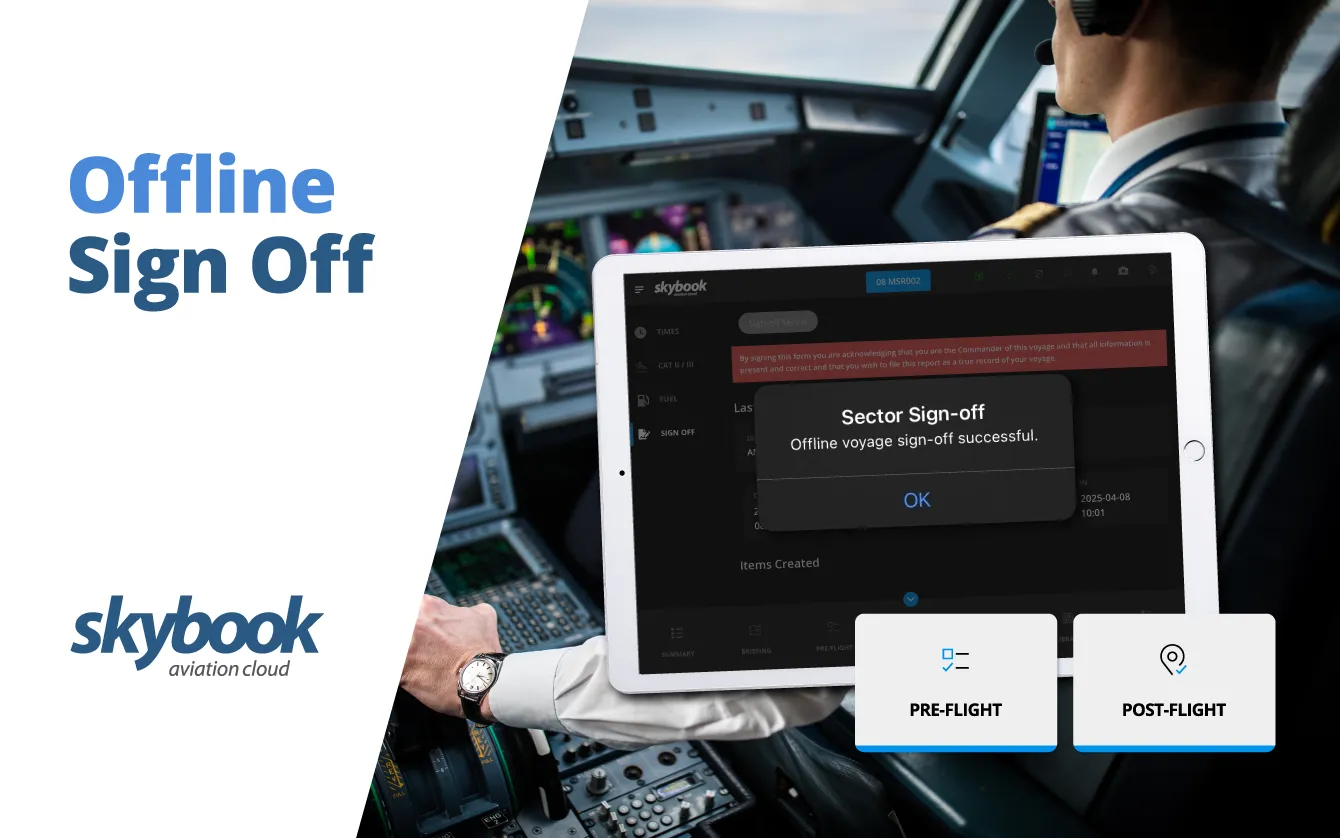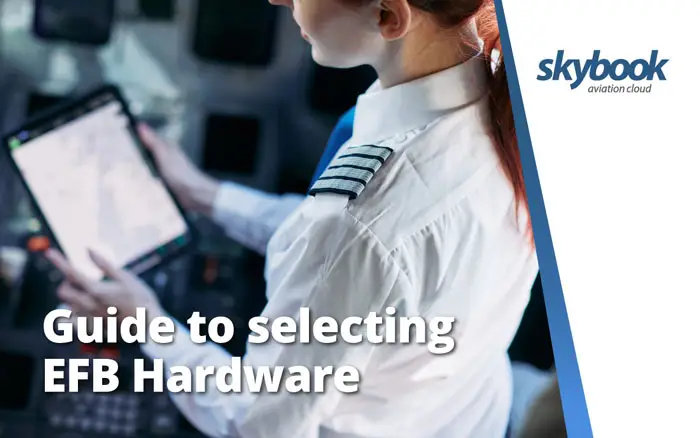
Why offline sign off matters on pilots EFB
Electronic flight Bags (EFBs) have transformed the way pilots and airlines manage flight operations, replacing traditional paper-based methods with a compact, digital alternative and streamlining the flight phase process.
However, implementing and using EFBs involves meeting regulatory requirements to ensure their effective use without compromising flight safety.
This article outlines the required regulatory requirements for EFBs...
Before airlines and operators can deploy EFBs, they must obtain approval from their respective aviation authorities. This process involves a thorough demonstration that the EFB system meets all required standards and is safe for operational use.
Authorities such as the Federal Aviation Administration (FAA) in the United States and the European Union Aviation Safety Agency (EASA) in Europe, oversee these approvals.
The approval process ensures that EFBs are not only beneficial but also do not compromise flight safety.
EFB devices must adhere to specific hardware standards to guarantee reliability and safety under various flight conditions.
These standards cover everything from battery life, size, durability of the devices to their performance in extreme environments.
Ensuring that the hardware meets these rigorous requirements is crucial for maintaining consistent and safe flight operations. Learn more about selecting EFB hardware.

The software running on EFBs is equally important, being certified and validated to ensure it performs its intended functions correctly.
EFB software can include a wide range of applications, such as navigation charts, performance calculations, operation manuals, to other critical flight management workload.
The validation process ensures that the software is reliable and can be trusted to provide accurate and timely information to pilots and crew.
Ensuring complete data security in today’s digital age is paramount. EFB regulations require that all data stored and processed by these devices is secure and accurate.
This includes implementing measures to prevent unauthorized access and ensuring the data's integrity is maintained.
Protecting this data is essential not only for operational efficiency but also for maintaining trust and safety within the aviation industry. Read further about data security for EFBs.

The introduction of EFB systems requires extensive training and procedural adjustments, and it is a critical component to ensuring the EFB is successfully implemented into the airline.
Flight crews, EFB admins and other ground personnel must be adequately trained to use these new systems effectively, this ensures that airlines are complying with regulatory requirements.
Additionally, airlines need to establish clear procedures for the use and management of EFBs to ensure they are used consistently and correctly. This training and procedural framework is vital for integrating EFBs seamlessly into flight operations.
EFB software providers should provide a range of different EFB training options such as on-site or remote training sessions, training videos and resources such as user guides. Check out how our EFB provides added value with training.
EFBs must be smoothly incorporated into an airline's operational procedures. This ensures that the use of EFBs does not interfere with other critical flight operations.
EFBs are also increasingly integrating with other systems to create a more seamless workflow for pilots, which enhances situational awareness. Such as integrating EFBs to charting applications or connecting to an aircraft interface device.
Whilst integrated systems hugely enhance efficiency and decision making within flight operations, airlines need to also ensure they have backup systems in place to handle any potential EFB failures, thereby maintaining operational continuity and safety. Learn more about the power of EFB integrations.

Scheduled updates are essential to keep EFBs functioning optimally and in compliance with regulatory standards. This includes regular software updates and hardware checks, and it’s recommended to have routine audits to maintain compliance.
Keeping EFBs up-to-date ensures they continue to provide accurate and reliable information, improved efficiencies and contribute to the overall safety of flight operations.
By adhering to the stringent regulatory regulations, airlines can harness the full potential of Electronic Flight Bags, ultimately enhancing their operations and contributing to safer skies.
As EFB technology continues to develop so will the regulatory requirements. Future innovations could include AI integrations, predictive weather, enhanced post-flight data analysis and much more. Read more about the future of EFBs.
Why not subscribe to our blog, for more insights and updates on EFB technology, and take the opportunity to learn more about our skybook EFB.
Get access to our latest news & skybook updates